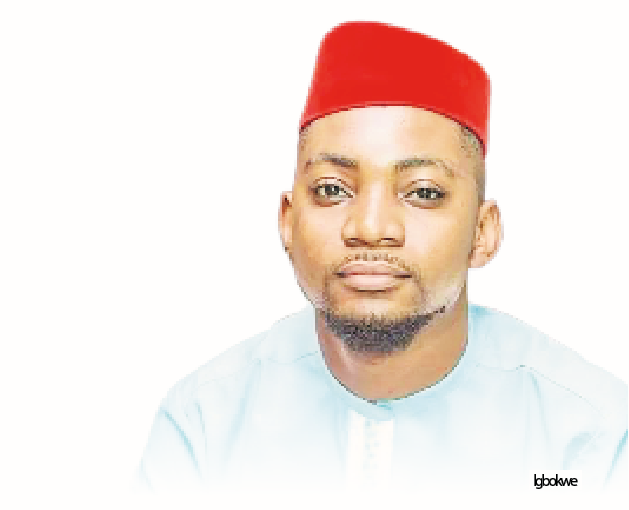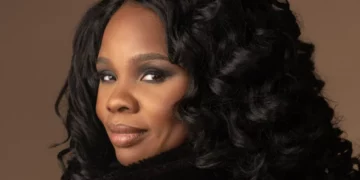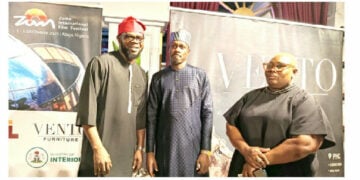General Manager of External Relations & Sustainable Development at the Nigeria Liquified Natural Gas Limited (NLNG), Mr Andrew Odeh said post the establishment of the NLNG Nigerian Prize for Literature in 2004, the Nigerian literature and publishing sphere have witnessed great improvement.
Odeh who spoke at the Committee for Relevant Art (CORA) and NPL Book Party for the eleven longlisted authors for the 2023 edition of the prize said prize was set up to address the depreciated standard of reading, writing and editing in Nigeria’s publishing industry.
To best achieve this aim, in 2010, NPL partnered with CORA to move from the sole purpose of enriching just one author (with its $100,000 prize), to impacting the entire book industry, through CORA’s Book Party event – which features an interactive session with all longlisted authors; its Book Trek – which holds readings of works longlisted authors in several bookstores across Lagos; and post LABAF hosting of all NPL longlisted authors each year.
“For what is the worth of the riches when you don’t have an audience. Nothing beats a Book Reading, an event at which an author sits and discusses his work with readers in the room. The Book Party is one of the series of events in calendar that preface our annual Lagos Book and Art Festival (LABAF), with the 2023 theme The Reset: History and a Darkling Plain.
“Regardless of who wins the NPL this year, the longlisted laureates are invited to the Book Trek segment of LABAF, and will be hosted to readings in the week after LABAF,” said CORA, Secretary General, Toyin Akinosho.
The result of this collaboration is a tremendous increase in the number of writers (especially in the drama genre, which seems the least favorite genre for writers), with the genre receiving 143 entries this year, and over 2400 entries across four genres (poetry, prose, drama and critique/scientific pieces) to date.
There has also been an improvement in the subjects of discourse in publishing as indicated by submissions for the dramatic entries this year – whereby authors explored local, African and International issues as it affects the African continent.
There is The Brigadiers of A Mad Tribe by Abuchi Modilim which explores Igbo Metaphysics, Igbo Worldview, particularly, the effect of Religion on the Traditional Science, not to mention Japa syndrome and political shenanigans in the Nigerian society.
Author, Ojomu Abideen, said The Ojuluegba Crossroads addresses the ongoing war of language in the world, with the aim of dissecting the conversation to address why Africa and blackness is the narrative for negativity, what blacks do to enforce this negative narrative, and Africa’s need to unite “to uphold the values of Africa, and take control of our destiny, and ensure that when we speak, we do not participate in the dehumanization of our own race.”
Victor Dugga’s Gidan Juju, is telling never before heard stories from north central Nigeria with the aim of encouraging writers and readers alike to continuously throw up ideas “because without ideas we are going nowhere as a nation.”
Cheta Igbokwe’s Homecoming dealt with the problem of recognition – both emotional and physical aspects of recognition – based off a peculiar personal experience of his at the Murtala Muhammed airport, Lagos in the year 2019. While in The Boat People – Professor Christopher Anyaoku challenges African leaders to provide conducive environments for Africans to thrive and thus prevent the thousands of drownings of Africans who in search of a greener pasture, in rickety boats traversing Niger Republic to Libya via Mediterranean Sea to Europe.
Supplanting the elites and political class with the masquerade, the custodians of a society, Olubunmi Familoni tells the tale of people’s uprising against the inaccessibility of their leaders whose power has turned oppressive in When Big Masquerades Dance Naked.
In Where Is Patience Zero, Taofeek Olatunbosun investigates the global powers and scientists, for their politicization of the virus and inefficiencies through the probing of the fate of virus’ first carrier, Patience Zero; while Yamtarawala: The Warrior King rediscovers the story of the Ibrahim, a 16th century traditional leader from the area of Biu who successfully strengthened its people from external attacks – his efforts till this day has ensured that the region remains the only area that the Boko Haram tribe hasn’t conquered. It also speaks of the need to identify and celebrate such figures.
These among others are topical issues of the nation and the globe, tackled by the authors, while the prize provides a platform to which these messages are spread across to the Nigerian audience, regardless of who wins the prize.
As the CORA member and culture advocate, Jahman Anikulapo said to the authors, “If you are declared the best out of 143 entries, then you are simply one of the best writers today. Everyone of you is a winner.”
One area the prize is lacking though, is the presence of women in this genre – as the longlist conspicuously holds no single female playwright. It might be high time that literary institutions invested in the development of female playwrights in Nigeria.





